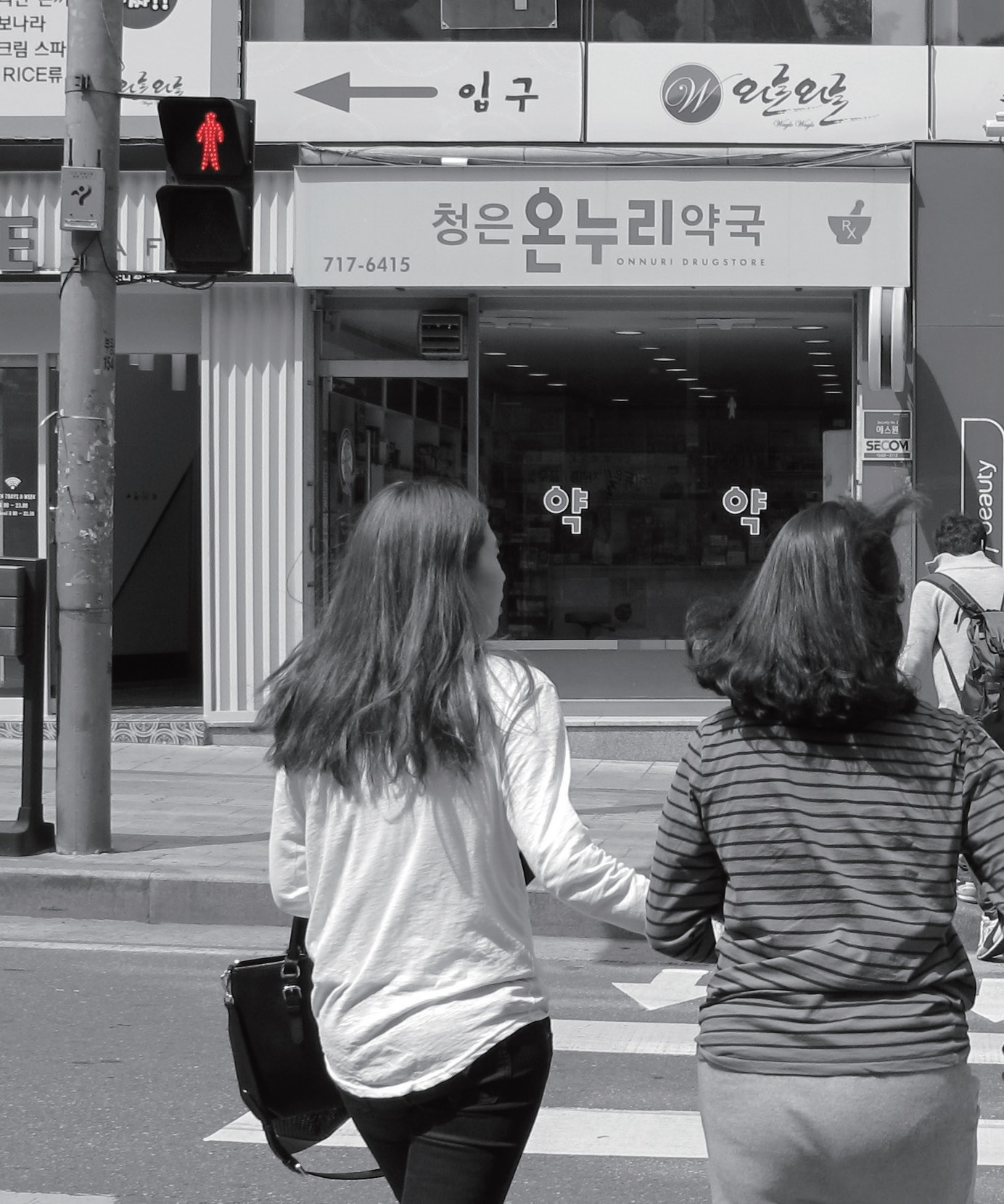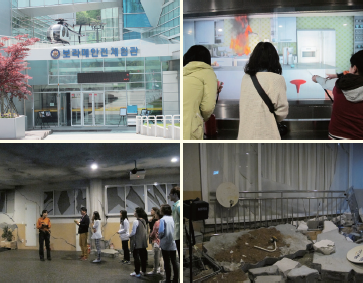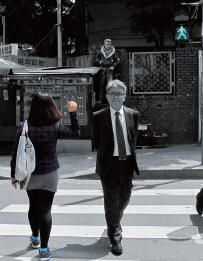
Submersion of the Sewol ferry has put all citizens into great depression. Since there were so many students on the ferry, most people feel regretful even now. Looking at the disgraceful accident, the cause lies on frigidity towards safety. Most people are unaware of small safety regulations in everyday life. This frigidity can also be found in our personal lifestyle. Then, what are the problems and how should we deal with safety frigidity?
Trivial Things, Inattentive Acts

In everyday life, situations arise in which we should choose between convenience and tiresome effort. However, most ‘convenient action’ has corresponding risks in the long run. Since there are no standards, there is a high possibility of side effects. Even though risk exists, most people choose convenience. For example, people should use a crosswalk when crossing the road. But most people tend to jaywalk in a rush despite knowing there is a high accident risk. In other words, people desire comfort and it leads us to become frigidity towards safety.
Moreover, this phenomenon has also appeared on campus. Sookmyung Women’s University has many damaged properties such as cracked walls and broken doors. Since the trivial flaws do not pose big problems, most administrators and students are unaware of them. They don’t try to repair the defects right away, even though the small cracks can turn into huge disasters. In case of Seoul National University, it has so many cracks on its walls of Natural Science Department building. Problems are worsening as time passes.1 However, people on campus silently fear the problem and do not actively raise complaints about the damage.

Unconscious EmberTurns into a Big Fire
Most people remain frigid towards safety for two reasons. Firstly, there is a huge problem in the way people take measures. When an accident happens, most people are terrified, flustered, and do not know what to do. Rather than preparing for an accident before it actually happens, people struggle with post-management. Accidents never occur without reason. There is always a forewarning or noticeable phenomenon, but most people neglect the signs since they seem trivial at that moment. Many people reflect on and regret their inaction only after those trivial flaws turn into huge disasters. For instance, in July 2013, an accident occurred on a camping trip of the Marine Corps which affected middle school students. Since safety rules were not detailed prior to the training session, many students died or were injured.2 This tragedy could have been prevented if people at the training ground had been informed of the safety regulations. Since they were frigid about safety and regarded the rules as trifling, people were unable to escape the emergency. More serious point is that most people have a ‘boiling pot’ attitude toward these types of incidents. They merely regret and feel pity only for a particular period of time. According to the Ministry of Education, the Marine Corps problem is not yet solved, even though nine months have passed. Representative of a resident group said, “Administrators have not even finished a simple roadmap detailing measures that should be taken immediately when an accident occurs. They gradually turn into a blind eye toward the tragedy as time passes.” This kind of boiling pot tendency can result in poor solution plans and make the incidents reoccur.

Secondly, most students are frigid towards safety in the way they act and think. As they witness or observe an accident, most students feel the happening would never occur to them in their lifetime. They accept tragedy from a third person point of view. This kind of attitude deteriorates the preference for safety. When students read or hear news about big tragedies, they merely feel pity for the victims and never believe the tragedy would actually happen to them. Lee Soomi, Division of Child Welfare and Studies ’13, said, “I feel horrified when I hear about a tragedy, but I don’t feel a real connection since accidents like those have never personally occurred in my life. I think this kind of attitude makes me frigid towards trivial safety regulations.” This tendency blocks students from giving considerable thought to safety rules in their normal lives. They naturally pass over ‘small possibilities.’

Always Be Prepared

Safety should be resolved from the start-up of education. Most schools or public institutions have lax programs related to safety awareness. Even though some schools try to integrate emergency training programs, they don’t actually help students in reality. Rather than simplifying the programs, schools and public institutions should give students real experiences and let them beware about emergency situations in everyday lives such as having emergency training program. To be specific, the first alternative plan would be visiting a public institution. One public institution, Boramae Safety Center, located in Seoul provides people with a chance to experience tragedy. At this safety center, people can experience dangerous occurrences as natural disasters or car accidents. Also, they learn how to deal with these situations and be flexible during an emergency. Schools should give students opportunities to visit these public institutions to make them realize the importance of prior preparation.

One step farther, students can utilize the application called Safety Springboard and check the safety tips everyday through their cell phones. Since Safety Springboard has both internet homepage and smartphone app, people are able to access easily. This service provides useful technique such as finding a lay-by, noticing storm warning and finding locations about hospitals or shelters. The information could help the students to always emphasize small daily safety habits.
Accidents Happen Without Notice

Most accidents are hard to predict. They occur without notice, and the result is always quite big. In order to prevent the back blast, we should be fully aware of safety precautions in our everyday life. Safety is not acquired naturally; we have to continuously endeavor to have it. The most important thing is to change our way of thinking. Terrible disasters can occur to each of us. Rather than overlooking sorrowful happenings, we should actively sympathize and strive to prevent them before they occur. As noted humanist and theologian Erasmus said, “Prevention is better than a cure.”
1 Kim Kwanghyon, “Neglecting Problems of Campus Facilities,” SBS, May, 2014
2 Song Hyunsook, “Still Resolving the Marine Camp Tragedy……,” The Kyunghyang Shinmun, May, 2014


